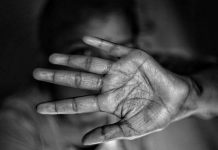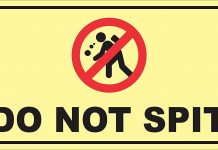This article is written by Parul Chaturvedi, pursuing LLB from Dr. R.M.L Law College, Bangalore. It deals with the impact of lockdown in Indian Courts and how the hearing goes in the virtual Courts for urgent matters during the lockdown period.
Table of Contents
Introduction
The Plague of the COVID-19 outbreak in India led to a decision by the Hon’ble Prime minister to declare a 21-day national lockdown for controlling the spread of the novel Coronavirus. It was noticed by the Supreme Court and all the High Courts as well in other states and metros to vacate the place. The High Courts of other states restricted complete functioning and heard extremely urgent matters by benches consisting of one or two judges. A decision to “close down” the Supreme Court premises with immediate effect and hearing on urgent matters through video-conferencing and Skype by the Judges, lawyers, and advocates of the Apex Court. The big move by the Supreme Court on conducting virtual hearings through video-conferencing. It should be done at the residence or chambers of one of the judges. The other judges join on the Bench and hear the matters from their homes or offices. On discussion with the Chief Justice and other judges, the Supreme Court’s e-committees chairman Justice D.Y Chandrachud directed e-committees of 23 High Courts and agreed that e-filing will be implemented in all courts as well as in trial courts across the country for hearing of urgent cases through video-conferencing. The video recordings of urgent matters will be present on websites of the courts and will be accessible by people.
The Supreme Court Bar Association and Supreme Court Advocates-on-Record Association spent hours on hearing the matter. The bench heard three matters via videoconferencing, sticking to the social distancing protocol aimed towards deflating the Coronavirus pandemic. The Supreme Court premises, inclusive of the chamber blocks, can be completely closed down with immediate effect. Hearings will take place without public presence and most effective through video-conferencing, and Skype or through other digital means. For urgent filing of matters, procedure needs to be followed with one web page justification displaying urgency and the judge will decide the urgency and if the judge declines, he will hear the concerned lawyer on phone in the course of specified times only. During the meeting, they could accumulate that the judges are inclined to address all problems being faced by lawyers in the Bar regarding urgent matters, stated SCBA and SCAORA, which additionally issued a separate direction to its members.
“An app called ‘Vidyo’ might be available for download in all Android and Apple-based smartphones. The stated app will operate in all smartphones, desktops, mobiles, laptops, netbooks, iPads, etc. that have cameras,” the SCAORA said. Earlier, at some point in the hearing on 23rd March 2020, the Apex Court docket decided to seal lawyers chambers in and around its premises and only one court hearing urgent matters through video-conferencing. The bench said that it was considering shutting down its functioning and thinking about hearing urgent matters through digital means.
Here, in this article, the author wants to present the current scenario during lockdown how the Supreme Court or virtual courts deal with the urgent matters on court cases and in what way the hearing goes on in the virtual court. What are the sections imposed in the country during the lockdown period and procedure to file the case in the court? A major question is, whether this will continue after the lockdown is lifted? Is the tracking of cases also related to judicial delays?
Lockdown and Emergency
- Meaning of Lockdown- A lockdown is an emergency where the order is given by an authoritative power to prevent a person from leaving an area or building and to keep people in safe custody.
- Emergency- A state of emergency is a governmental declaration that normally suspends a few regular functions of the executive, legislative and judicial powers, alerts residents to exchange their normal behaviours, or order authorities companies to enforce emergency preparedness plans. It could also be used as a motive for adjourning rights and freedoms, even though certain under the Constitution.

Lockdown has been put under order Disaster Management Act, 2005
The National Disaster Management Authority (NDMA) has issued directions and guidelines to the Centre, as well as all State/Union Territory governments to take effective measures to prevent the spread of COVID-19 in India.
A lockdown primarily affects two of our Fundamental Rights:
- The right to move freely throughout the territory of India
- The right to practice any profession, or to carry on any occupation, trade or business. These rights are given under
This is clear that ‘reasonable restrictions’ can be imposed on these rights in the interests of the general public provided it is done by a duly enacted law.
Article 360 of the Indian Constitution: Financial Emergency
Article 360 states that if the President is content with a situation that has emerged due to financial stability or the credit of India or any place thereof is vulnerable, the President may declare a state of financial emergency.
That period of time when such decree is in operation, the executive authority of the Union enhance to the route of any State to look over such canons of financial propriety as may be specified in the directions, any such guidance may also include:
- A provision requiring the reduction of salaries and allowances of all or any class of person serving a State or the Union.
- A provision requiring all Money Bills or other Financial Bills to be reserved for the consideration of the President after they are passed by the legislature of the State.
- A proclamation issued under Article 360 will remain in force for two months unless before the expiry of the period it is approved by both the Houses of the Parliament.
- Once approved it remains in force till revoked by the President.
- No emergency under Article 360 has been imposed so far.
Punishment and Penalties for Violating Lockdown
- There are penalties under the Disaster Management Act for violations of any orders passed by the relevant authorities,
- Penalties: 2 years of jail term only be imposed after conviction by a court,
- Detaining a person by police who violated an order relating to lockdown offences are bailable.
Sections 51-60 of the Disaster Management Act set out the offences and penalties under it, which would apply to violations of the lockdown order.
Under Section 51 of the Disaster Management Act (Obstruction).
- It is an offence if you restrict a government servant from obeying their duties, directions issued by the Centre/State governments or the NDMA.
- Any violation of the instructions, and the orders by State Governments/local administration to enforce them, like a place of worship, coordinating a social event, etc, will all be considered an offence under this.
Epidemic Diseases Act, 1897
- Section 2 of the Epidemic Diseases Act, 1897 has the powers to take all necessary measures to contain an epidemic.
- Section 2A empowers the Centre to take measures for inspections and detention of ships. States have invoked Section 2 of the 1897 Act to enforce orders for prevention to combat the virus.
Penaty Upon Conviction
- Up to 1 year’s imprisonment + fine. If your actions lead to loss of lives, then up to 2 years imprisonment + fine.
- Up to 1 month imprisonment plus fine of Rs 200.
- If the disobedience causes danger to human life, health or safety it leads to 6 months imprisonment plus fine of Rs 1,000.
Section 188 of IPC
Any breach of the lockdown can also be penalized under Section 188 of the Indian Penal Code. This provision imprisons any person who infringes an order by a public servant to refrain from an act or to negotiate with their property in a way.
It also leads to search what orders relating to the lockdown have been issued by the State Government and District Magistrate.
Section 54 of the Disaster Management Act, 2005
It offers punishment to an individual who makes or circulates a false alarm or warning as to calamity or its severity or magnitude, mainly to panic. Such a man or woman shall be punished with imprisonment which may additionally extend to one year or with fine.
Urgent matters before Court
Suo moto case
Meaning: “Suo moto” is a Latin phrase that has its genesis in Ancient Rome‘s legal system and literally converts to “on its own motion”. Like in divorce cases, a judge can act suo moto. It is a decision by a court or a government entity that takes an action on its own accord and not from a party for a motion to move to the court or the entity to act.
The Supreme Court and other Courts looked on Suo moto cases to avoid overcrowding and lack of basic facilities in prisons during COVID-19. A notice circulated to the Director-General of prison, Chief-Secretary of all states and union territories on steps taken for avoidance of COVID-19.
Suo moto cognizance of COVID-19 under Article 226 and 227, “Taking suo moto cognizance in the preceding circumstances, under Article 226 & 227 of the Constitution of India, it is stated that in all matters pending before the court and its subordinate courts, at which point interim orders circulated on 16.03.2020 and expired or will expire, that extended till 15.05.2020 or until additional orders, except the orders passed by the Supreme Court of India in any specific matter, during the intermediate period”.
- The court has passed the interim orders by itself as well as by the subordinate courts for liberty to look for appropriate relief.
- The court directed for the said order to be uploaded on the website of the Court and communicated to all the Standing Counsel, Civic Authorities, Delhi High Court Bar Association, all the other Bar Associations of Delhi, as well as to all District Courts subordinate courts.
Power of Supreme Courts in Urgent Case
Article 142 of the Indian Constitution
By issuing directives under Article 142 of the Indian Constitution, The Supreme Court has the power to lay down his order to all subordinate courts in India. The present situation delays judicial independence but it is also a test of judicial sensitivity, vision and expertise. It is explained below in a table:
|
Term |
Meaning |
|
Judicial Sensitivity |
Courts are sensitive towards migrant workers and poor |
|
Judicial Vision |
Hearing of case with video conferencing support |
|
Judicial Expertise |
Addressing technical issues relating to the epidemic of coronavirus |
Preferred cases
- Bail application (Supreme Court stays single bench order to not list bail applications during lockdown),
- Hearing in matters of migrant workers,
- Suspension of sentence,
- Sureties and bail,
- Release order before jail,
- Availability of protection kits for doctors, police personnel working at the frontline,
- Border blockade for emergency medical cases,
- Condition of children in child protection homes,
- Nizammudin religious assembly case,
- Planning to introduce emergency parole and special furlough in prison rules.
Special filing guidelines laid down in court
The stakeholders approach the Judicial Registrar through email by condoning the urgency of the complaint by listing the date and time suggested. When a Judicial Administrative officer notes that the matter is extremely urgent and needs an immediate hearing on that day then he can contact the duty judge and convey the urgent matter for a court trial.
Section 6 of Information Technology Act
It legalises all transactions by Governments authorities using electronic records and puts in physical records.
For e-filing, Justice Chandrachud confirmed free facilities of scanning and uploading documents to lawyers and litigants during the lockdown period.
Hearing
It is done by providing cubicles or portacabins, equipped with cameras, desktops etc; for video conferencing. The e-filing system has been developed for trial courts in the Supreme Court’s committee in collaboration with NIC and this is being used by courts after lockdown. The virtual court for e-challans under the Motor Vehicles Act, it is also used for summary cases and in difficulty on using e-filing the software has been modified.
Hearing done in the Supreme Court
- Only hear urgent matters,
- Every day after 6 pm sanitization is done after lawyers and staff vacate the place,
- Incase lawyers need adjournment of any case he has to write the request application,
- Providing Video conferencing facility for lawyers and judges and special room provided for lawyers in premises for video conferencing,
- Introducing an app for lawyers to do the hearing from their offices,
- For Supreme Court’s reporter, smart TV installed in the press lounge to see the proceedings of the court, especially for a journalist,
- Release of prisoners to avoid overcrowding and to minimize the risk of virus infection in prisons.
Hearing done in Bombay High Court
- Only hearing for urgent matters cover Nagpur, Aurangabad and Goa benches,
- Least prior case will get an adjournment,
- Lawyers have to request to inform registry if they want their case to be treated urgently in the court list,
- Avoid unnecessary overcrowding lock-ups in court.
Hearing done in Securities Appellate Tribunal
- Hearing only urgent cases,
- Entry only of lawyers, Chartered Accountant and one representative of the litigants,
- For case postponement, lawyers have been asked to write for registry of tribunals before 9.30 am every day and placed on bench on same day,
- Change in working time 11.30 am to 4.30 pm for avoiding traffic rush.
Hearing done in Delhi High Court
- Only urgent cases on emergency needs,
- Listing done on High Court registry,
- Bail granting case also on priority list High Court direct this to District Courts,
- To avoid the personal appearance of convicts,
- Use of video conferencing in extremely urgent case.
Case 1: Migrant Workers
The Supreme Court issued directives to the centre to issue basic necessities and medical facilities to migrant workers in view of nationwide lockdown. Petition filed in Court:
The advocates filed the instant writ petitions in public interest for redressal of hardship of migrant workers in various parts of the country. The relocation of the migrant labourers to government shelter homes/accommodations and provide them basic amenities and medicines. The steps put forward by the Government of India for the relocation of migrant labourers to relief camps with required daily necessities, directions were given by the courts to the state Governments and union territories to go with the directions given by the central government.
Case 2: Kerala HC Notice Union Govt to remove Karnataka’s Border Blockade for emergency medical cases
Facts of the Case: The case related to blocking of National Highway by Karnataka leads to dismissal of access to health services in Mangalore for Keralites dwelling near the Karnataka border resulted in loss of lives after the 21-day national lockdown declared on March 24th.
Issue: The case related to the blocking of National Highways by Karnataka this lead to infringement of Right to life under Article 21 that blockade lead to fatal result in Kasaragod as people relying on hospitals.
Judgment By High Court
Under Article 21 of the Constitution of India, states cannot block interstate transport for crucial services. The state government has no right to hinder National Highways; it is an infringement of Right to life under Art 21 and afflicted Right to Freedom of Movement under Article 19(1)(d) of the Indian Constitution. The High Court was compelled to pass the order while the delay led to loss of lives of many. The Kerala HC directed the central govt to intervene in the matter that the barriers elevated by the Karnataka govt on national highways joining the state of Kerala will be removed without delay to ease the transport movements transporting persons for urgent medical treatment crosswise the border between the two states.
Judgment of Supreme Court
The Supreme Court decided a bundle of petitions from the Karnataka government. The High Court conveyed the guidelines allowed to the High Court which held that Karnataka’s road barriers resulted in refusal of access to health services which resulted in infringement of Right to life under Article 21 and also affected Right to freedom of movement under Article 19(1)(d) of the Constitution of India. The court passed the order to the Union government on the reasoning that arterial roads that connect Mangalore in Karnataka to Kasaragod in Kerala are a portion of the National Highway network and it is the duty of the Central Govt to assure that roads are kept free of barriers. Also, the court observed that the guidelines issued by the Union Home Ministry under the Disaster Management Act had free emergency medical services from the extent of lockdown.
Case 3: on Condition of children in child protection homes, juvenile and foster homes
Supreme Court Order- The order of the Supreme Court to the juvenile justice boards (JJBs) to release all children asserted to be in conflict with law residing in observation homes on bail until there are open and valid reasons not to do so.
File Petition in Court
This petition has been listed on suo motu because of the COVID-19 plague which is wide-ranging in the country. These are children in conflict with law kept in various types of homes. It said that children kept in shelter homes care at this time, these became the basic priority to look in these children under Juvenile Justice Care and Protection of Children Act, 2015, should be protected.
Instructions
Issuing directions to the Child Welfare Committee (CWCs), the Apex Court said ‘aggressive steps have to be taken against the impact of the coronavirus outbreak and special online sittings or video sessions to be considered, that may be taken to ensure that the children living in such homes and open shelters are kept away from the risk of harm from coronavirus.
Ways of Judgement
Video-conferences or online sittings can be held to prevent contact while speedy disposal of cases and the Juvenile Justice Boards should ensure that counselling services are provided for all children in observation homes.
Case 4: Nizamuddin religious Assembly
Facts of the case
About 600 Indians from different parts of the country and 2,000 foreign delegates attended a religious assembly in Delhi’s Nizamuddin West from March 1-15 where more than 200 tested were positive for Coronavirus. The several smaller assemblies of Muslim community reaching a peak in the big meeting at the headquarters of the organisation. The organisation shares a common wall with the Nizamuddin police station and is nearby the famous shrine of Khwaja Nizamuddin Auliya. The assembly was attended by preachers from several countries, including Saudi Arabia, Indonesia, Dubai, Uzbekistan and Malaysia.
Issues of the case
The Markaz of the Tablighi Jamaat at Nizamuddin is accountable for the transmission of the coronavirus infection. The markaz is guilty and punishable under the relevant sections of the IPC. A religious fundamentalist exposes large sections of the population to disease and fatality. The organisers committed a serious crime. The Disaster Management Act and Epidemic Diseases Act was enforced in Delhi and no assembly of more than five people was allowed under Section 144.
FIR Registered
A case was registered by the Delhi Police against Maulana Saad and other officials of Tablighi Jamaat for violating the restriction referring to religious assembly. Sections under the Epidemic Disease Act,1897 and Section 269, 270, 271 and 120-B of the Indian Penal Code (IPC) have been put into effect. In the FIR, it has been stated that the assembly failed to take safety measures for the prevention and treatment of COVID-19. Suo moto cognizance of the religious assembly of Delhi’s Nizamuddin area which has imperiled several corona positive cases.
The state has to take all control standards and essential measures to carry out not only the instruction and quarantine guidelines issued by the central government, the state government to regulate the widespread of deadly novel Coronavirus.
Important Articles and Sections
Article 142 of the Indian constitution
Enforcement of decrees and orders of Supreme Court and unless as to discovery, etc.
- The Supreme Court in the act of its jurisdiction authorizes such decree or make an order which is essential for performing complete justice in any cause or matter awaiting before it, and will be enforceable throughout the territory of India.
- Subject to the provisions of any regulation made in this behalf via parliament,the Supreme Court with the complete territory of India. shall make an order for the secured attendance of any person and investigation or punishment of any contempt by itself.
Section 436A CrPC– Maximum period for which an undertrial prisoner can be detained
This section states that a person during the process of examination, enquiry and trial. In the Code, an offence shall sustain confinement for a period extending up to one-half of the maximum period of jail particular for that offence under that law, he shall be discharged or freed by the Court on his personal bond with or without sureties
Section 70(2) in The Code Of Criminal Procedure, 1973
(2) Every such warrant shall remain in power until it is cancelled by means of the Court which issued it, or until it is completed.
Section 97 in The Indian Penal Code– Right of private defence of the body and of property. Every person has a right, subject to the restrictions contained in Section 99, to defend:
- Firstly- his personal body, and the body of any different person, towards any offence affecting the human body.
- Secondly- the property, whether or not movable or immovable, of himself or of any different person, in opposition to any act which is any offence falling underneath the definition of theft, robbery, mischief or crook trespass, or which is an try to commit theft, robbery, mischief or crook trespass.
Section 164 in The Code Of Criminal Procedure, 1973
Recording of confessions and statements-Any Metropolitan Magistrate or Judicial Magistrate may, whether or not or no longer he has jurisdiction in the case, report any confession or assertion made to him in the route of any investigation below or any different regulation for the time being in force, or at any time afterwards earlier than the initiation of an inquiry or trial. Provided that no confession shall be recorded with the aid of a police officer on whom any power of a Magistrate has been conferred underneath any regulation for the time being in force.
Tracking of the cases in courts: A bigger Challenge
It is one of the core issues for judicial delays. The role of the Administrative system is to track the new and current cases during the appointment of judges in an assigned court. Cases that need debate, argument, discussion are adjourned to the next date and the number of pending cases remains unchanged. The biggest dilemma before the court is an increase in pending cases day by day like 500 cases pending before the constitution benches which are to be settled. If cases are pending in Supreme Court it impacts lower Courts and High Courts the case will go on delayed and result in bigger obstacles for lawyers on this court. It is a chain of cases the mere decision on followup cases on the Supreme Court indirectly impacts 40,000 related cases of lower courts. The Supreme Court operates only 185 days a year, remaining days it is closed which impacts the working of the other courts such as High Courts and Lower Courts the apex court consideration is cited in these courts. Small negligence by the Apex Court opens a room for arbitrary interpretations for lower courts.
Pendency of cases during Lockdown
- Leads to further adjournment of cases during lockdown result in fraud or conspiracy to those related to scam or financial abuse get more time to play crooked with the evidence.
- Some accused in jail pending bail proceedings need to spend longer time in custody.
- Adjournment in non-urgent cases in favour of urgent case proceedings leads to delay injustice.
- On reopening of court the new cases will appear immediately after being filed result in old and notice cases appear in rosters list this led to increase in judicial times.
Advantages of Virtual Court during Lockdown
- The filing of lawsuits online and the processes being implemented for legal notices to be issued digitally.
- It compelled the Indian judicial system to adopt modern technology to reduce the cost of administrative resources involved in the appearance of jailed accused in the courts.
- There is loss of revenue due to the slow functioning of the courts, estimated to be 0.5 percent of India’s GDP. The coming of technological enhancement in the judicial proceedings shall play significant roles in the Indian legal system.
Conclusion
The virtual courts video-conferencing for urgent matters during the lockdown and cutting down of administrative costs resources, backlog of cases reduced due to virtual hearing and adoption of modern technology by Indian courts. Despite several advantages, the challenges faced by Indian courts in lockdown situations is huge pendency in courts- about 60,000 matters in the Supreme Court docket and 87% in subordinate courts as per mentioned in news. The lockdown has affected the normal time taken to dispose of the matters. Appointments of Judges and filling vacancies to deal with caseload put up COVID-19. One advantage of virtual hearing is that it speeds up the process of Justice.
Secondly, venture the dedication of urgency, how to outline urgent matters that contain a violation of fundamental rights such as involving writ of habeas corpus. Any complaints towards the public authorities such as police officers to misuse his strength
Thirdly legal professionals in litigation and working in legal firms, concerned with no work or lay off which are subject to evaluation of the courtroom registers. According to preference of cases, the count comes up on the docket least they invite the judges. So, what are the nominal cases taken up by the Apex Court? So what is the precedence of the cases taken by the Supreme Court? Recently, Bar Council of India requested the Prime Minister in a written letter to address all state Chief Ministers to grant 20,000/- per month subsistence allowance to young lawyers during lockdown as relief for needy and who are not financially settled lawyers, it’s a good initiative taken by BCI. The Indian court system should adopt indispensable service models.
References
- https://indiankanoon.org/doc/1850059/.
- https://www.barandbench.com/news/litigation/supreme-court-takes-suo-motu-cognizance-of-covid-19-scare-in-child-protection-foster-homes-passes-slew-of-directions-for-preventio.
- https://lawstreet.co/executive/nizamuddin-markaz-case-central-govt-seeks-suo-moto-cognizance/.
- https://www.republicworld.com/india-news/general-news/kerala-hc-tells-centre-to-remove-blockades-on-karnataka-kerala-border.html.
- https://www.india.com/news/india/covid-19-lockdown-supreme-court-to-hear-plea-on-migrant-workers-tomorrow-3984900.
- https://indiankanoon.org/doc/640589.
- https://indiacode.nic.in/bitstream/123456789/10469/1/the_epidemic_diseases_act%2C_1897.pdf.
- https://www.advocatekhoj.com/library/bareacts/constitutionofindia/index.php?Title=Constitution%20of%20India,%20194.
- https://indiankanoon.org/doc/445276.
- https://www.advocatekhoj.com/library/bareacts/indianpenalcode/index.php?Title=Indian%20Penal%20Code,%20186.
- https://www.ndmindia.nic.in/images/The%20Disaster%20Management%20Act,%202005.pdf.
- https://timesofindia.indiatimes.com/india/virtual-courts-to-hear-urgent-cases/articleshow/74988557.cms.
- https://www.bloombergquint.com/law-and-policy/how-indian-courts-are-adapting-in-the-times-of-covid-19.
- https://www.indiatoday.in/india-today-insight/story/justice-in-the-time-of-covid-19-1662330-2020-04-01.
LawSikho has created a telegram group for exchanging legal knowledge, referrals and various opportunities. You can click on this link and join:
 Serato DJ Crack 2025Serato DJ PRO Crack
Serato DJ Crack 2025Serato DJ PRO Crack










 Allow notifications
Allow notifications


